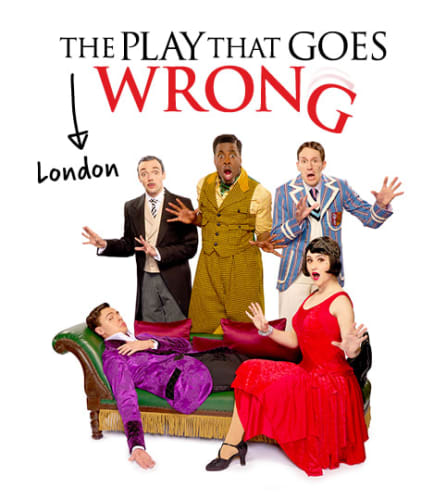It was only a matter of time before some enterprising ticket agency attempted to persuade us that the best way to ensure a great night out at the theatre was via Artificial Intelligence.
For centuries, misguided theatregoers have believed that highly experienced critics were the best guide to the quality of a theatrical production and its potential appeal. Each of us would find the critics whose judgements accorded with our own and follow their tips, more often than not with happy outcomes.
For those that hadn’t the time to peruse newspapers and, more recently, web sites, word-of-mouth was also a good sometimes slightly less reliable method of deciding what one might like. Trusted friends and family members would rave about the latest hit show or their discovery at an almost unknown fringe theatre, persuading you, for better or worse, that this was the best place to this, a great night out.
While neither of these processes was infallible, the hit rate was usually surprisingly high, especially after you discounted the views of those who had poor judgement or perhaps just different tastes.
In many cases, all of that was swept away by the rising wave of social media. Now, everyone can be an overnight expert creating web sites or contributing to many instant response outlets with carefully considered views such as “I liked Six” or, equally scientifically, “Isn’t Jodie Comer / Kit Harington gorgeous?” (delete as applicable).
One could argue that a random number generator would be as likely to point someone with a free evening in the right direction but, as with monkeys and typewriters, some of the time they will get it right.
Now, a new kid on the block, Holiday Extras, (which has heretofore been a market leader in airport parking, airport hotels, destination car hire and associated services) promises to take the uncertainty out of the process.
“The Phantom of the Algorithm” has unveiled what it describes as an “AI-powered show-finder” which is a new tool that claims to use AI to suggest best theatre picks. Even better, the company behind the project will also find you the best hotels and pre-show dinner deals if you are happy to complete an unintuitively brief questionnaire.
Having 40 years’ experience of matching people with holidays, the company is confident that it can search through more than 2,500 combinations of theatre tickets and hotels to deliver a perfect solution.
According to its press release the key selling points are:
- Tool uses a diverse range of genres to appeal to people of any age or demographic
- Also finds the best hotels and pre-show dinner deals
- Brief questionnaire removes the difficulty of choosing a show and makes it fun
What could be better than giving its six questions a go?
If you answer that you want to be
- Moved
- Witness No Singing
- Go to shows all the time
- Accompanied by one or more friends
- Devouring ice cream in preference to to crisps or chocolate (spot the relevance?)
- Acquiring show tickets without a hotel stay or dinner
it will allow you to choose from The Woman in Black, The Play That Goes Wrong or The Curious Incident of the Dog in the Night-Time.
Without wishing to debunk what is clearly going to be a desirable product for some potential customers, if like me you have seen every one of these, the algorithm did not prove especially accurate at the first attempt.
A second attempt changing the answers to
- Wowed
- Witness a few songs
- Go to shows once in a while
- Accompanied by a partner
- Eating crisps
- Acquiring show tickets with dinner
the algorithm comes up with Come from Away, Waitress or Six.
At this point, those who regularly visit theatres will observe that no fringe shows have been brought into the mix, while of the shows offered, only The Play That Goes Wrong and Six are still running, each of the others having closed long ago or even long, long ago.
Anyone who does strike lucky and follows the recommended links will arrive at what is effectively a ticket-booking web site. You can only imagine that this is the underlying rationale behind a new marketing initiative that clearly still requires considerable refinement, currently relying on a great deal of A and far too little I.
There is little doubt that, in the fullness of time, a much more sophisticated AI model will be developed that can help uncertain visitors to choose plays or musicals that might suit them with a fair degree of success. However, individuals will undoubtedly need to complete a questionnaire with many more options in order to discover a reasonably reliable recommendation and, even then, would still be better off following the opinions of trusted theatre critics of friends and family members.
Looking ahead, rather than leaving matters in the hands of a commercial ticket agency, this kind of project might offer a fine opportunity for the Society of London Theatre to help promote its highly value brand.
